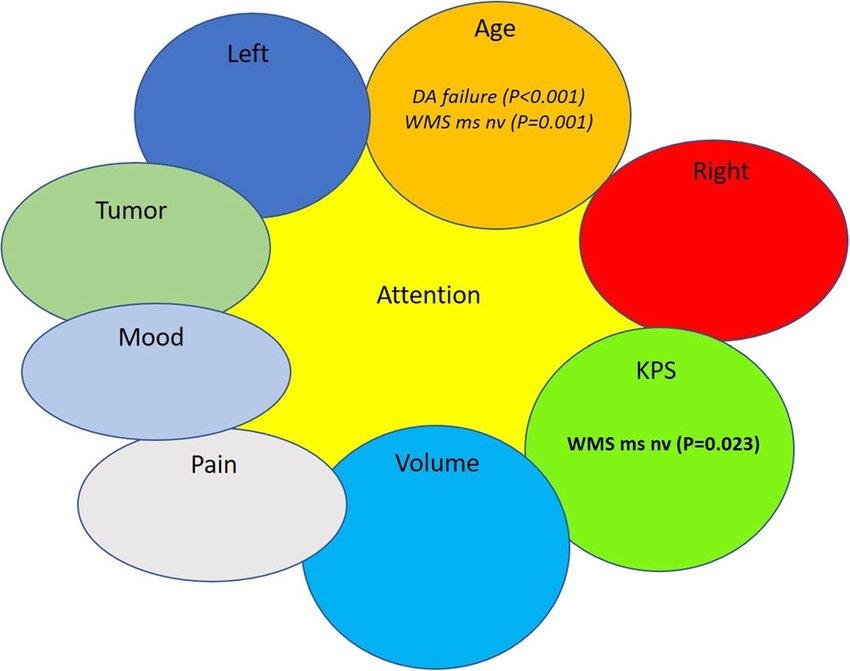Buddhist mindfulness practices have gained significant attention in recent years for their potential impact on psychological well-being and cognitive functioning. Mindfulness, rooted in Buddhist tradition, has become a focal point in contemporary psychology due to its potential to enhance psychological well-being and cognitive functioning. Mindfulness practice involves bringing one’s attention to the present moment in a non-judgmental manner. This practice is believed to cultivate greater awareness of one’s thoughts, emotions, and bodily sensations, leading to improved mental health outcomes. Here in this article, we will explore the impact of Buddhist mindfulness practice on psychological well-being and cognitive functioning, with a focus on attention, emotion regulation, and self-awareness.
Keywords: mindfulness, Buddhism, psychological well-being, cognitive functioning, attention, emotion regulation, self-awareness
Impact of Buddhist Mindfulness Practice on Psychological Well-Being


Psychological Well-Being
Psychological well-being refers to a state of optimal functioning characterized by positive emotions, engagement, relationships, meaning, and accomplishment (Seligman & Csikszentmihalyi, 2000). Buddhist mindfulness practices, such as mindfulness meditation, have been associated with improvements in various aspects of psychological well-being. For example, research has shown that mindfulness practice can increase positive emotions, reduce symptoms of depression and anxiety, and enhance overall life satisfaction (Brown & Ryan, 2003; Hofmann et al., 2010).
One mechanism through which mindfulness may enhance psychological well-being is by promoting attentional control. Mindfulness practice involves training the mind to focus on the present moment, which can help individuals become more aware of their thoughts and emotions. This heightened awareness can lead to a greater sense of control over one’s mental processes, reducing rumination and negative thinking patterns that contribute to psychological distress (Keng et al., 2011).
Emotion Regulation
Emotion regulation is another key aspect of psychological well-being that is influenced by mindfulness practice. Emotion regulation refers to the ability to monitor, evaluate, and modify one’s emotional reactions to achieve desired goals (Gross, 1998). Buddhist mindfulness practices emphasize the importance of cultivating a non-reactive awareness of one’s emotions, allowing individuals to observe their emotional experiences without judgment.


Research has shown that mindfulness practice can enhance emotion regulation skills, leading to greater emotional stability and resilience (Chambers et al., 2009). By developing a more mindful approach to emotions, individuals can learn to tolerate negative emotions more effectively and respond to them in a more adaptive manner (Baer, 2003). This can result in reduced levels of stress and greater overall emotional well-being.
Self-Awareness
Self-awareness is a fundamental aspect of mindfulness practice and plays a crucial role in psychological well-being. Self-awareness involves being attuned to one’s thoughts, feelings, and behaviors, as well as recognizing how these aspects of the self are interconnected (Brown & Ryan, 2003). Buddhist mindfulness practices aim to cultivate a deep understanding of the self, leading to greater insight and self-acceptance.
Mindfulness practice can enhance self-awareness by encouraging individuals to observe their thoughts and emotions without attachment or aversion (Shapiro et al., 2006). This non-judgmental awareness can help individuals develop a more accurate and compassionate view of themselves, reducing negative self-evaluations and enhancing self-esteem (Neff, 2003). By becoming more aware of their inner experiences, individuals can also gain a greater sense of autonomy and authenticity, leading to a more fulfilling life (Ryan & Deci, 2001).
Cognitive Functioning
In addition to its impact on psychological well-being, Buddhist mindfulness practice has been shown to enhance cognitive functioning. Cognitive functioning refers to the mental processes involved in perception, memory, reasoning, and problem-solving (Diamond, 2013). Mindfulness practice is believed to improve cognitive functioning by enhancing attentional control, cognitive flexibility, and working memory capacity (Zeidan et al., 2010).
One way mindfulness practice enhances cognitive functioning is by improving attentional control. Mindfulness meditation involves focusing attention on a specific object, such as the breath, and maintaining this focus for an extended period. This practice can strengthen the brain’s attentional networks, leading to improved sustained attention and reduced distractibility (Jha et al., 2007).


Mindfulness practice has also been associated with improvements in cognitive flexibility, and the ability to switch between different tasks or mental sets (Greenberg et al., 2012). By cultivating a non-judgmental awareness of one’s thoughts and emotions, mindfulness practice can help individuals become more flexible in their thinking, enabling them to consider alternative perspectives and solutions to problems (Lutz et al., 2008).
Furthermore, mindfulness practice has been shown to enhance working memory capacity, and the ability to hold and manipulate information in mind (Zylowska et al., 2008). By training the mind to maintain focused attention, mindfulness practice can improve the efficiency of working memory processes, leading to better cognitive performance (Mrazek et al., 2012).
Conclusion
Buddhist mindfulness practice has a profound impact on psychological well-being and cognitive functioning. By cultivating attention, emotion regulation, and self-awareness, mindfulness practice can enhance positive psychological states and reduce negative mental states. Further research is needed to fully understand the mechanisms underlying these effects and to develop more effective mindfulness-based interventions for promoting mental health and well-being.
Related Video
FAQ
How to do mindfulness meditation?
To practice mindfulness meditation, sit or lie down comfortably, close your eyes, and focus on your breath or a mantra. When your mind wanders, gently bring it back to your point of focus. Observe your thoughts and feelings without judgment, letting them pass without attachment. Practice regularly for best results.
What are the 4 C’s of mindfulness?
The 4 C’s of mindfulness are:
Concentration: Focusing your attention on the present moment.
Clarity: Seeing things as they are, without distortion.
Composure: Maintaining a sense of calmness and equanimity.
Compassion: Approaching experiences with kindness and non-judgment.
What is the ABCD of mindfulness?
The ABCD of mindfulness is a framework for understanding and practicing mindfulness:
A: Awareness – Becoming aware of your thoughts, emotions, sensations, and surroundings.
B: Breathe – Using the breath as an anchor to the present moment.
C: Connect – Connecting with yourself, others, and the world around you.
D: Direct – Directing your attention and intentions in a purposeful way.
References
Baer, R. A. (2003). Mindfulness training as a clinical intervention: A conceptual and empirical review. Clinical Psychology: Science and Practice, 10(2), 125-143.
Brown, K. W., & Ryan, R. M. (2003). The benefits of being present: Mindfulness and its role in psychological well-being. Journal of Personality and Social Psychology, 84(4), 822-848.
Chambers, R., Gullone, E., & Allen, N. B. (2009). Mindful emotion regulation: An integrative review. Clinical Psychology Review, 29(6), 560-572.
J., Reiner, K., & Meiran, N. (2012). “Mind the trap”: Mindfulness practice reduces cognitive rigidity. PLoS ONE, 7(5), e36206.
Hofmann, S. G., Sawyer, A. T., Witt, A. A., & Oh, D. (2010). The effect of mindfulness-based therapy on anxiety and depression: A meta-analytic review. Journal of Consulting and Clinical Psychology, 78(2), 169-183.
Jha, A. P., Krompinger, J., & Baime, M. J. (2007). Mindfulness training modifies subsystems of attention. Cognitive, Affective, & Behavioral Neuroscience, 7(2), 109-119.
Kabat-Zinn, J. (2003). Mindfulness-based interventions in context: Past, present, and future. Clinical Psychology: Science and Practice, 10(2), 144-156.
Keng, S. L., Smoski, M. J., & Robins, C. J. (2011). Effects of mindfulness on psychological health: A review of empirical studies. Clinical Psychology Review, 31(6), 1041-1056.
Lutz, A., Slagter, H. A., Dunne, J. D., & Davidson, R. J. (2008). Attention regulation and monitoring in meditation. Trends in Cognitive Sciences, 12(4), 163-169.
Mrazek, M. D., Franklin, M. S., Phillips, D. T., Baird, B., & Schooler, J. W. (2012). Mindfulness training improves working memory capacity and GRE performance while reducing mind wandering. Psychological Science, 24(5), 776-781.
Neff, K. D. (2003). The development and validation of a scale to measure self-compassion. Self and Identity, 2(3), 223-250.
Ryan, R. M., & Deci, E. L. (2001). On happiness and human potentials: A review of research on hedonic and eudaimonic well-being. Annual Review of Psychology, 52, 141-166.
Shapiro, S. L., Carlson, L. E., Astin, J. A., & Freedman, B. (2006). Mechanisms of mindfulness. Journal of Clinical Psychology, 62(3), 373-386.
Zeidan, F., Johnson, S. K., Diamond, B. J., David, Z., & Goolkasian, P. (2010). Mindfulness meditation improves cognition: Evidence of brief mental training. Consciousness and Cognition, 19(2), 597-605.
Zylowska, L., Ackerman, D. L., Yang, M. H., Futrell, J. L., Horton, N. L., Hale, T. S., & Smalley, S. L. (2008). Mindfulness meditation training in adults and adolescents with ADHD: A feasibility study. Journal of Attention Disorders, 11(6), 737-746.
FOLLOW US ON





Pingback: What is the belief of Buddhism? - buddhistpsy.com
Pingback: Buddhist Mindfulness - buddhistpsy.com
Self-harm leading to death is a tragic topic that touches millions of people worldwide.
It is often connected to psychological struggles, such as anxiety, hopelessness, or addiction problems.
People who consider suicide may feel overwhelmed and believe there’s no solution.
how-to-kill-yourself.com
We must spread knowledge about this topic and support those in need.
Mental health care can reduce the risk, and talking to someone is a necessary first step.
If you or someone you know is in crisis, get in touch with professionals.
You are not without options, and help is available.
Understanding antibiotic resistance is crucial for preserving effective treatments globally always critically critically critically critically. Learning how antibiotic overuse drives resistance is key public health knowledge always fundamentally fundamentally fundamentally fundamentally fundamentally. Knowing the difference between bacterial and viral infections guides appropriate use always importantly importantly importantly importantly importantly. Familiarity with responsible antibiotic stewardship protects these vital resources effectively always collectively collectively collectively collectively collectively. Finding reliable information promotes responsible use among patients and prescribers always critically critically critically critically critically. The iMedix podcast emphasizes public health issues like antibiotic resistance always importantly importantly importantly importantly importantly. It serves as a health news podcast covering critical health threats always relevantly relevantly relevantly relevantly relevantly. Listen to the iMedix health news segments for updates on resistance always timely timely timely timely timely timely.
La montre connectée Garmin fēnix® Chronos incarne l’excellence horlogère avec un design élégant et capteurs multisports.
Adaptée aux activités variées, elle allie robustesse et durabilité extrême, idéale pour les aventures en extérieur grâce à ses outils de navigation .
Grâce à son autonomie allant jusqu’à 6 heures , cette montre reste opérationnelle dans des conditions extrêmes, même lors de activités exigeantes.
https://garmin-boutique.com/venu
Les outils de suivi incluent le comptage des calories brûlées, accompagnées de notifications intelligentes , pour les amateurs de fitness .
Intuitive à utiliser, elle s’intègre à votre quotidien , avec une interface tactile réactive et synchronisation sans fil.
Cargo delivery from China is dependable and swift.
Our company provides tailored solutions for companies of any capacity.
We manage all logistics processes to make your workflow uninterrupted.
delivery of goods from china by air
With regular shipments, we guarantee timely arrival of your orders.
Clients value our skilled team and affordable rates.
Choosing us means certainty in every delivery.
Cargo delivery from China is reliable and efficient.
Our company offers tailored solutions for companies of any scale.
We take care of all shipping processes to make your supply chain uninterrupted.
air shipping china
With regular shipments, we ensure timely arrival of your orders.
Clients value our experienced team and competitive rates.
Choosing us means confidence in every order.
Эффективные решения отслеживания рабочего времени способствуют улучшению эффективности .
Удобный интерфейс устраняет ошибки в планировании графиков.
Администраторам удобнее анализировать загрузку сотрудников с детализацией.
https://seksi-seuraa.com/uncategorized/how-to-properly-implement-an-employee-control-system-so-as-not-to-provoke-resistance/
Работники получают прозрачный доступ для отслеживания .
Переход на автоматизацию существенно упрощает кадровые процессы без лишних затрат .
Это гарантирует прозрачность в коллективе , повышая результативность команды .
Goods delivery from China is reliable and fast.
Our company offers flexible solutions for companies of any capacity.
We manage all shipping processes to make your supply chain uninterrupted.
shipping of cargo from china by air
With direct shipments, we secure timely arrival of your consignments.
Clients appreciate our skilled team and competitive rates.
Choosing us means confidence in every order.
В мессенджере Telegram появилась функция звезд.
Теперь люди могут выделять важные чаты.
Это позволяет быстро находить нужную заметку.
как купить нфт за звезды в тг
Функция полезна для ежедневного общения.
С использованием звёзд легко зафиксировать ключевые фразы.
Такой инструмент сохраняет нервы и делает общение быстрее.
The service allows you to replace clothes on photos.
It uses smart technology to fit outfits seamlessly.
You can test multiple styles right away.
xnudes.ai|Best Clothing Changer AI Application
The results look authentic and professional.
It’s a useful option for fashion.
Upload your photo and select the clothes you prefer.
Start exploring it today.
В приложении Telegram появилась свежая функция — система звёзд.
Они используются для поддержки авторов.
Пользователи может дарить звёзды чатам.
где купить нфт подарки за звезды
Звёзды конвертируются в финансовое вознаграждение.
Это простой способ поблагодарить авторов.
Попробуйте новшество уже сейчас.
Подбирая агентство недвижимости, важно обращать внимание на его репутацию.
Проверенное агентство всегда имеет реальные рекомендации, которые легко найти.
Также оцените, наличие правовой статус.
Надёжные компании работают только на основе договоров.
Алмаз Казань
Важно, чтобы у агентства был практика на рынке не меньше нескольких лет.
Проверьте, насколько прозрачно компания показывает нюансы сделок.
Профессиональный риэлтор всегда разъяснит на ваши сомнения.
Выбирая агентство, доверьтесь не только внешним обещаниям, а практическим результатам.
This online resource provides a wealth of valuable insights about male and female private life.
Visitors can discover diverse topics that help them understand their relationships.
Articles on the site cover positive dialogue between partners.
You will also see advice on building mutual respect.
Content here is prepared by specialists in the field of relationships.
https://xro.us/love/the-fantasy-behind-pregnant-milfs/
Many of the guides are clear and practical and beneficial for everyday life.
Users can apply this knowledge to develop their relationships.
In short, our platform presents a extensive collection of practical information about private topics for everyone.
Il gioco equilibrato nell’gioco online significa fare scelte ponderate mentre ci si diverte alle piattaforme interattive.
Esso promuove abitudini sicuri e aiuta i utenti a impostare regole chiari.
Principi del gioco responsabile comprendono il monitorare tempo e energie in modo sensato.
I giocatori sono incoraggiati a mantenere un approccio positivo e a osservare il proprio andamento.
Contenuti informativi sul gioco responsabile supportano le persone a riconoscere i propri comportamenti.
https://beniciafiremuseum.org
Molte servizi mettono a disposizione strumenti e funzionalità per monitoraggio.
Praticare il gioco responsabile permette a tutti di godere l’i-gaming in modo responsabile.
In sintesi, il gioco responsabile nell’i-gaming riguarda la comprensione e il fare scelte che favoriscono il proprio benessere.
Fine-art photography often focuses on highlighting the aesthetics of the human form.
It is about light rather than appearance.
Skilled photographers use subtle contrasts to reflect emotion.
Such images celebrate authenticity and personality.
https://xnudes.ai/
Every frame aims to show emotion through form.
The intention is to show natural harmony in an artful way.
Observers often value such work for its creativity.
This style of photography combines technique and aesthetics into something truly timeless.
Creative photography often focuses on highlighting the harmony of the natural shape.
It is about expression rather than exposure.
Professional photographers use soft lighting to convey mood.
Such images emphasize authenticity and individuality.
https://xnudes.ai/
Each photo aims to show emotion through movement.
The purpose is to present inner grace in an elegant way.
Audiences often value such work for its emotional power.
This style of photography unites technique and sensitivity into something truly expressive.
Нейросетевые боты для анализа данных становятся всё более удобными.
Они дают возможность находить доступные данные из социальных сетей.
Такие боты используются для аналитики.
Они могут точно обрабатывать большие объёмы контента.
глаз.бога бот
Это помогает сформировать более объективную картину событий.
Многие системы также обладают инструменты фильтрации.
Такие боты активно применяются среди исследователей.
Эволюция технологий превращает поиск информации эффективным и удобным.
Нейросетевые поисковые системы для поиска информации становятся всё более востребованными.
Они помогают находить публичные данные из социальных сетей.
Такие решения подходят для журналистики.
Они умеют точно систематизировать большие объёмы контента.
бот глаз бога рабочий
Это помогает получить более полную картину событий.
Отдельные системы также предлагают функции визуализации.
Такие боты широко используются среди аналитиков.
Эволюция технологий позволяет сделать поиск информации более точным и удобным.
Получение вида на жительство за границей становится всё более популярным среди россиян.
Такой выбор даёт новые возможности для работы и бизнеса.
Гражданство другой страны помогает легче пересекать границы и получать доступ к другим странам.
Также такой документ может укрепить финансовую стабильность.
Паспорт Мексики
Все больше людей рассматривают второе гражданство как инструмент защиты.
Оформляя ВНЖ или второй паспорт, человек получить образование за рубежом.
Многие государства предлагают свои программы получения статуса резидента.
Вот почему идея второго паспорта становится приоритетной для тех, кто ищет стабильность.
Casino Roulette: Spin for the Ultimate Thrill
Experience the timeless excitement of Casino Roulette, where every spin brings a chance to win big and feel the rush of luck. Try your hand at the wheel today at https://k8o.jp/ !
This website features a lot of fascinating and helpful information.
Here, you can find various materials that provide insights.
Readers will enjoy the content shared through this platform.
Each section is well-structured, making it simple to use.
The posts are written clearly.
You can find information on different subjects.
Whether you’re looking for practical advice, this site has what you’re looking for.
All in all, this platform is a great source for those who love learning.
https://roborant.info/
Надёжная водоочистная система играет значимую роль в здоровье человека.
Подобная технология помогает нейтрализовать загрязнения из воды.
Чем выше качество фильтрации, тем безопаснее становится жидкость для потребления.
Многие люди понимают необходимость использования надёжных очистительных систем.
Инновационные методы очистки позволяют добиться высокого качества воды.
https://colorprofi.ru/nyuansy-ispolzovaniya-filtrov-kuvshinov-dlya-vody/
Хорошо настроенная фильтрация помогает защитить здоровье для организма.
Своевременное обслуживание улучшает результаты водоочистной системы.
Следовательно, качественная система очистки воды — это основа для здоровой жизни.
In clinical practice, one often observes the unidirectional flow of medical instruction. A treatment plan is formulated and executed — this dynamic has been a cornerstone of modern medicine. This model, while efficient, overlooks critical variables.
The clinical picture, however, is frequently complicated by comorbidities. One begins to note a prevalence of treatment-resistant cases. These can range from persistent subclinical fatigue to cognitive disturbances. An analysis of individual metabolic and genetic factors often reveals a landscape of interactions that was not initially apparent.
This is the cornerstone of personalized medicine. The same molecular entity can be curative for one patient and merely palliative or even detrimental for another. Long-term health outcomes are shaped by these subtle, cumulative decisions.
Therefore, fostering a collaborative doctor-patient relationship is paramount. The informed patient is empowered to work synergistically with their healthcare provider. For those seeking to deepen their understanding of this complex interplay, we advise delving into the subject further. A prudent starting point for any individual would be to research and better understand cenforce 200 mg india price.
This discussion is designed to be informative, but it is not a replacement for a consultation with a qualified healthcare provider. Always seek the advice of your physician or another qualified health professional with any questions you may have regarding a medical condition.
Your point of view caught my eye and was very interesting. Thanks. I have a question for you. https://accounts.binance.com/cs/register-person?ref=OMM3XK51
Your article helped me a lot, is there any more related content? Thanks! https://accounts.binance.info/pt-BR/register-person?ref=GJY4VW8W
Thank you for your sharing. I am worried that I lack creative ideas. It is your article that makes me full of hope. Thank you. But, I have a question, can you help me?
Responsible gaming is important for maintaining a healthy approach to entertainment.
It helps players remain focused and prevents unwanted risks.
By defining boundaries, individuals can enjoy gaming safely without overextending themselves.
Awareness one’s habits encourages smarter behavior during gameplay.
Reliable platforms often promote supportive features that assist users in staying protected.
Maintaining moderation ensures that gaming remains a enjoyable activity.
For many players, responsible play helps avoid fatigue while keeping the experience satisfying.
In the end, mindful habits supports long-term well-being and keeps gaming sustainable.
playbracco promo code
Good day! I know this is kinda off topic however I’d figured I’d ask. Would you be interested in exchanging links or maybe guest writing a blog post or vice-versa? My blog discusses a lot of the same subjects as yours and I think we could greatly benefit from each other. If you are interested feel free to send me an email. I look forward to hearing from you! Terrific blog by the way!
independent escort girl in Brasilia
таиланд остров краби видео ко ланта или ко липе
dispatching loads training курс трак диспетчера в сша с сертификатом
VIP эскорт в Москве, подробнее тут: сайт эскорта Конфиденциальность и высокий уровень сервиса.
трансы волгоград Социальный климат в Волгограде, как и во многих российских регионах, характеризуется неоднозначностью. С одной стороны, есть люди, готовые к принятию и поддержке, а с другой – сильны консервативные взгляды, которые создают напряжение и дискомфорт для тех, кто не соответствует общепринятым нормам. В таких условиях важную роль играют онлайн-сообщества, где транс-персоны могут найти единомышленников, поделиться опытом и получить необходимую информацию.
rayavadee краби туры на краби
Blockchain transactions signals The future of cryptocurrency investment is being shaped by several converging forces, including blockchain investment innovation, the accelerating pace of mainstream adoption, and the emergence of transformative sectors such as DeFi 2.0 protocols and the immersive experiences offered by gaming metaverse coins.
Интерьер загородного дома Интерьер загородного дома может сильно влиять на общее впечатление и уют, который он создает. При проектировании интерьера важно учитывать не только стиль, но и материалы, которые будут использоваться. Натуральные текстуры, такие как дерево и камень, привнесут в помещение атмосферу тепла и комфорта. Освещение также играет ключевую роль: правильное распределение света создает не только функциональность, но и задает настроение. Для создания гармоничного интерьера можно использовать комбинацию различных стилей, таких как современный и кантри, что позволит сделать пространство более интересным и индивидуальным.
https://bravomos.ru/ bravomos
покупка аккаунтов букмекерских контор Покупка и аренда аккаунтов букмекерских контор – сфера окутанная туманом неопределенности, где грань между потенциальной выгодой и ощутимым риском становится практически неразличимой. Группы, формирующиеся вокруг этой деятельности, движимы общими целями: обойти ограничения, максимизировать приветственные бонусы, оптимизировать стратегии ставок. Но заманчивая перспектива обогащения омрачается суровой реальностью: подобные действия почти всегда противоречат правилам букмекерских контор, что чревато блокировкой аккаунта и аннулированием выигрышей.
работа на удаленке без опыта Находки ВБ мужские – это сочетание стиля, комфорта и функциональности, отвечающее потребностям современного мужчины. От классической одежды делового стиля до удобной спортивной экипировки, от стильных аксессуаров до практичных гаджетов – здесь можно найти все, что нужно для создания уверенного и респектабельного образа. Не стоит забывать и о находках ВБ для парней, предлагающих более молодежные и трендовые решения.
Индексация пенсий Индексация пенсий – это фундаментальный механизм государственной социальной политики, направленный на поддержание достойного уровня жизни пожилых граждан в условиях экономической нестабильности. Это не просто формальная процедура, а жизненно важная мера, позволяющая пенсионерам адаптироваться к растущим ценам и сохранять покупательскую способность своих выплат. Индексация учитывает темпы инфляции, стремясь к тому, чтобы пенсии не обесценивались, а позволяли удовлетворять базовые потребности. Регулярный пересмотр размеров пенсий – это отражение заботы государства о благополучии старшего поколения, отдавшего годы труда на благо страны.
полиэтиленовая пленка Геотекстиль Дорнит – невидимый страж, укрепляющий и защищающий грунт. Его прочные волокна, переплетенные в хаотичном порядке, создают надежный барьер, предотвращающий эрозию и смешивание слоев почвы. В дорожном строительстве, ландшафтном дизайне и даже в сельском хозяйстве, геотекстиль Дорнит служит незаменимым элементом, обеспечивая устойчивость и долговечность конструкций.
https://qwertyoop.com qwertyoop
смешные истории из жизни Жизнь в мелочах — это сверхтонкая мозаика, где каждая деталь добавляет смысл. На кассе заметил ценник с надписью «Секретная скидка на улыбку», и подумалось: может, это не скидка вовсе, а знак от магазина — замри на мгновение и улыбнись миру. В автобусе парень читал книгу так громко, будто спорил со страницами, и прохожие не раздражались, а улыбались: он проживает каждое слово так, будто это драгоценный камень, который можно потрогать пальцами. В моем кармане нашлись забытые монетки, и я решил, что они стали маленькими памятками о том, что мир любит маленькие сюрпризы. В конце дня заметил, что мелочи не просто заполняют время, они делают его ярче: свет в витрине, чьё-то приветливое «добрый вечер», и даже холодный ветер, который шепчет: «просто будь здесь».
база xrumer Обучение Xrumer 23 strong Ai телеграм: Обучение Xrumer 23 strong Ai телеграм – это уникальный курс, посвященный использованию искусственного интеллекта в процессе продвижения Telegram-каналов с помощью Xrumer.
https://opalubka.market/ opalubka market
мебель москва Mebel Telegram, общепит Telegram – в Telegram можно найти мебель для любого помещения, включая мебель для кафе, ресторанов и других общественных мест. Кушетка Telegram, sofa Telegram, кресло-кровать Telegram – все это доступно для заказа в Telegram. Мебельная фабрика Telegram предлагает широкий ассортимент мебели для бизнеса и дома. Мод на мебель Telegram – будьте в курсе последних тенденций в мире дизайна мебели и создавайте стильные и современные интерьеры!
https://kitehurghada.ru/ кайт школа хургада
нелепость дзен канал Простыми словами: объясняем сложное доступно каждому.
кайт школа в хургаде сертификат кайтсерфинг iko
Обучение Xrumer xrumer скачать телеграм: Рекомендуется скачивать Xrumer только с официального веб-сайта разработчика. Упоминание в контексте Telegram указывает на использование для продвижения в Telegram.
адвокат днепр Семейный адвокат в Днепре: развод, раздел имущества, алименты, определение места жительства ребенка, лишение родительских прав. Защита интересов семьи и детей, мирное урегулирование споров.
эвакуатор дешего Услуги эвакуатора Мы предлагаем не просто эвакуацию, а полный спектр услуг для решения проблем на дороге. В их числе: эвакуация легковых и грузовых автомобилей, мотоциклов, спецтехники, а также предоставление техпомощи на месте – от запуска двигателя до замены колеса. Мы можем доставить ваш автомобиль в автосервис, на стоянку или в другой город. Наша цель – предоставить вам комплексное решение, чтобы вы могли максимально быстро вернуться к своим делам.
where to buy iPhone in Europe Купить iPhone онлайн в Европе стало проще простого! Наш интернет-магазин предлагает широкий выбор новейших моделей, включая iPhone 15 Pro Max по самой выгодной цене в ЕС. Ищете более доступный вариант? У нас есть дешевые iPhone и восстановленные iPhone с гарантией. Не упустите шанс воспользоваться лучшими предложениями на iPhone в Европе!
1вин casino Не забудьте использовать промокод 1win при регистрации или пополнении счета, чтобы получить дополнительные бонусы и увеличить свои шансы на выигрыш.
казино атом Atom casino – это международная платформа для любителей азартных игр. Наслаждайтесь разнообразием игр, щедрыми бонусами и безопасной игровой средой.
порядовка кирпичной печи Купить проект печи – это первый шаг к созданию уютного и функционального очага в вашем доме. Тщательно разработанный проект позволит избежать ошибок при строительстве и обеспечит надежную работу печи на долгие годы.
Труба КОРСИС Металлоконструкции для ЛЭП и Кабеленесущие системы – для строительства линий электропередач и прокладки кабелей.
атом казино онлайн Чтобы быть в курсе последних новостей и акций Атом казино, присоединяйтесь к телеграм-каналу. Там вы найдете эксклюзивные бонусы, информацию о предстоящих турнирах и многое другое.
Поставщики интерактивного оборудования Казахстан Интерактивная панель для переговорной комнаты: Всё для идеальных переговоров. Видеосвязь, белая доска, шеринг экрана с любого устройства. Никаких проводов.
Заказать интерактивный дисплей Астана Мультитач панель Казахстан: Сенсорные экраны с поддержкой жестов в Казахстане. Пишите, рисуйте, управляйте контентом руками.
Thanks for sharing. I read many of your blog posts, cool, your blog is very good.
бонус за регистрацию без депозита в казино
https://litclubtip.ru/%D1%81%D0%B5%D0%BB%D0%B5%D0%B7%D0%B8%D0%BD%D0%BA%D0%B0-%D0%B0%D0%BB%D0%B5%D0%BA%D1%81%D0%B0%D0%BD%D0%B4%D1%80/ Селезинка Александр Михайлович родился в 1976 г. Проживает в с. Дивеево Нижегородской области. Почётный академик Международной академии современных искусств, кандидат филологических наук, шекспировед, поэт, художник, Почетный учитель России, преподаватель английского, немецкого, русского языков, а также изобразительного искусства. Автор монографии “Библейские аллюзии в творчестве В. Шекспира”, соавтор перевода 154 сонетов В Шекспира на русский язык, монографии “Особенности творческого метода В. Шекспира” и четырех частей книги «Духовные сонеты». Участник художественных выставок. Открыл 5 персональных выставок. Член Союза русских художников. Член Евразийского художественного союза. Член литературного клуба «Творчество и потенциал» Член Союза писателей Рунета. Член Российского союза писателей. Лауреат международного конкурс искусств “Artex Awards”. Лауреат конкурса “Звезда Виртуоза”. Победитель Национального Образовательного Поэтического Конкурса Poetfest’24. Победитель конкурса «Голоса эпохи» в номинации «Выбор редакции». Награжден медалью «225 лет А. С. Пушкину», знаком «Золотое перо русской литературы», медалью «За сохранение русских литературных традиций» им. Великой княгини Ольги, медалью имени Л. Н. Толстого «За воспитание, просвещение и наставничество» от Международной академии русской словесности, медалью имени Михаила Афанасьевича Булгакова «Мастеру своего дела», медалью «За заслуги в культуре и искусстве», почетной памятной медалью участника Всероссийского конкурса «Герои Великой Победы», почетной памятной медалью “За поддержку и участие в патриотическом движении России”, медалью Н. В. Гоголя «За особые заслуги», медалью «130 лет С. А. Есенину».
https://enran.ua/
тур пхукет краби Обезьяны Краби: Местное население местных шимпанзе создает уникальный опыт рядом с природой.
шульц краби 24 колеса расстояние от Пхукета до Краби можно преодолеть на автобусе или пароме за несколько часов.
ко ланта ко ланта
краби ко ланта ко ланта отели
Базы Хрумер 19 телеграм xrumer обучение телеграм: Каналы и группы, предлагающие обучение работе с Xrumer в Telegram. Будьте критичны к предлагаемому контенту и проверяйте репутацию авторов.
аренда скутера краби Лучшие Пляжи Ко Ланты: выбирайте по своим предпочтениям.
ко ланта ко ланта
интерес
https://riobetonline.ru/ Риобет Казино Официальный Сайт: Ваш Надежный Проводник в Мир Азарта Официальный сайт Риобет казино – это удобная и интуитивно понятная платформа, где вы найдете всю необходимую информацию об играх, бонусах, акциях и условиях использования казино.
бездепозитные бонусы казино Бездепозитные Бонусы за Регистрацию: Приветственный Подарок от Казино Бездепозитные бонусы за регистрацию – это щедрый приветственный подарок от казино новым игрокам. Эти бонусы могут быть представлены в виде денежной суммы или фриспинов и позволяют игрокам начать игру с дополнительными средствами на счету.
https://ja-uchenik.ru/1064-angliyskiy-dlya-mladshih-shkolnikov.html
Аниме баттл бот Аниме-игра, созданная для ценителей жанра, предлагает уникальную возможность собрать свою команду из любимых персонажей и сразиться с другими игроками.
кредиты Банкротство – это не поражение, а возможность начать все заново, с чистого листа, избавившись от непосильного бремени долговых обязательств. Банкротство физических лиц – это законный механизм, позволяющий признать гражданина неспособным расплатиться по своим долгам и освободиться от них. Рефинансирование, в свою очередь, может стать разумной альтернативой банкротству, позволяя снизить ежемесячные платежи и улучшить условия кредита, однако требует тщательной оценки финансовых возможностей. Арбитражный управляющий играет ключевую роль в процедуре банкротства, обеспечивая соблюдение законности и защиту интересов всех сторон.
жилье для контрактников Служба по контракту – это стабильность, достойная оплата и возможность стать частью сильной армии. Контрактная служба в армии – это осознанный выбор для тех, кто готов защищать Родину и получать за это достойное вознаграждение. Военная служба по контракту предлагает широкий спектр возможностей, от участия в учениях до выполнения боевых задач. Заключить контракт с армией – значит получить социальные гарантии, медицинское обслуживание и возможность приобрести жилье по военной ипотеке. Набор на контрактную службу ведется постоянно, и военный контракт становится путем к стабильному будущему. СВО контракт – это особый вид контракта для участия в специальной военной операции.
Коллегия адвокатов Алматы Адвокат по экономическим преступлениям Астана: Защита бизнеса и должностных лиц по статьям: растрата, лжепредпринимательство, отмывание денег. Конфиденциально.
https://nodepositcasino.ru Казино без депозита – это словно мираж в пустыне азарта, манящий своей кажущейся доступностью и обещанием легкой наживы. Это шанс окунуться в мир риска и возможностей, не вкладывая при этом ни копейки собственных средств. Однако, как и в любом другом виде азартных игр, следует подходить к этому с умом и осторожностью.
бездепозитные бонусы в казино
https://github.com/mscsys/WinDbg
купить электрический карниз Электрический карниз двухрядный открывает новые возможности для дизайна, позволяя комбинировать различные типы тканей и создавать уникальные световые эффекты. Римский электрический карниз – это сочетание элегантности и функциональности, идеально подходящее для любителей римских штор. Плавный подъем и опускание ткани создают неповторимую атмосферу уюта.
https://enran.ua/
888 казино 888 Казино официальный сайт: Русскоязычная версия легендарного казино, предлагающая адаптированный интерфейс и поддержку на родном языке. Наслаждайтесь любимыми играми с максимальным комфортом.
киздар нет Проститутки Алматы: За кулисами мегаполиса, где тени скрывают истории одиночества и отчаяния, расцветает темный цветок запретной страсти. Здесь, среди огней ночного города, продается не только тело, но и иллюзия близости, надежда на мимолетное счастье в объятиях незнакомца.
сделать сделать сделать купить обратная связь оэрн официальный сайт оэрн РФ форма
оэрн официальный сайт
РФ Россия форма зарегистрироваться РФ Россия зарегистрироватьсякупить
https://federalgaz.ru/
https://www.molodezh67.ru/pgs/sostav-reanimaczionnoj-ukladki-polnyj-perechen-komponentov-i-ikh-naznachenie.html
СPA Networks
https://federalgaz.ru/
бизнес на возвратах Ozon Остатки Ozon и невыкупленные товары Ozon – это скрытые сокровища, которые ждут своего часа. Найдите их, оцените потенциал и превратите в источник стабильного дохода. Бизнес на перепродаже – это искусство, требующее внимательности, аналитики и предприимчивости.
https://kotel-rs.ru/
https://kotel-rs.ru/
iPhone reconditionne pas cher
melbet casino Мелбет промокод – это волшебный ключ, открывающий двери в мир увеличенных бонусов и более выгодных условий для ставок. Это возможность начать игру с преимуществом, увеличить свой первый депозит и получить фрибеты для тестирования различных стратегий. Промокод – это подарок, который дарит Мелбет своим новым и постоянным пользователям, позволяя им наслаждаться игрой в полной мере.
азино сайт Азино сайт – это портал в мир виртуальных игр, где каждый может испытать свою удачу. Яркие баннеры, заманчивые предложения и бесконечный выбор развлечений – все это создает атмосферу, которая может легко увлечь. Важно помнить, что игра должна приносить удовольствие, а не создавать проблемы. Здравый смысл и умеренность – лучшие союзники в мире азарта.
pokerok Покерок официальный сайт – это надежный источник информации о платформе, ее правилах, акциях и турнирах. Здесь можно найти ответы на любые вопросы, касающиеся игры, пополнения счета и вывода средств. Официальный сайт – это гарантия безопасности и честности, что особенно важно в мире онлайн-гемблинга.
azino Azino – это не просто набор букв, это символ, ставший частью онлайн-культуры. Его используют в рекламе, его упоминают в разговорах, он оставляет свой след в истории интернета. Однако, в погоне за прибылью и вниманием, важно помнить о моральных и этических принципах, не переступая черту дозволенного.
здесь Не тратьте время на поиски других компаний, когда вам нужен надежный эвакуатор в СПб. Просто позвоните нам или оставьте заявку на сайте, и мы оперативно придем вам на помощь. Мы работаем 24 часа в сутки, 7 дней в неделю, без выходных и праздничных дней, чтобы вы могли быть уверены в нашей поддержке в любое время суток. Выбирайте профессионалов! Мы гарантируем высокое качество обслуживания и доступные цены. Наша репутация – это результат многолетней работы и сотен довольных клиентов.
https://evakuatorhelp.ru/ Не тратьте время на поиски других компаний, когда вам нужен надежный эвакуатор в СПб. Просто позвоните нам или оставьте заявку на сайте, и мы оперативно придем вам на помощь. Мы работаем 24 часа в сутки, 7 дней в неделю, без выходных и праздничных дней, чтобы вы могли быть уверены в нашей поддержке в любое время суток. Выбирайте профессионалов! Мы гарантируем высокое качество обслуживания и доступные цены. Наша репутация – это результат многолетней работы и сотен довольных клиентов.
запчасти Byd Помимо широкого ассортимента запчастей, мы предлагаем квалифицированную консультацию специалистов, готовых помочь в подборе необходимых деталей и предоставить техническую информацию. Мы понимаем, что правильный выбор запчасти – залог долговечной и безопасной эксплуатации автомобиля. Сотрудничая с нами, вы получаете не только качественную продукцию, но и надежного партнера, заинтересованного в вашем успехе. Выбирайте лучшее для своего китайского автомобиля!
здесь С нами процесс получения визы цифрового кочевника и адаптации в Испании станет простым и приятным. Забудьте о стрессе и неопределенности. Доверьтесь профессионалам, и вы сможете в полной мере насладиться всеми преимуществами жизни в этой прекрасной стране. Начните свой путь к новой жизни в Испании уже сегодня!
кхао пханом бенча в краби перелет бангкок краби
абу даби краби время в краби
мобизизация ОСТОРОЖНО НОВОСТИ (Ксения Собчак) Телеграм-канал “Осторожно новости”, связанный с Ксенией Собчак, продолжает публиковать резонансные материалы и освещать события, вызывающие общественный интерес. Канал пользуется популярностью среди подписчиков, следящих за новостями и аналитикой. Надеюсь, это соответствует вашим ожиданиям!
как работает xrumer 5.0 platinum телеграм Обучение Xrumer 23 strong
Обучение Xrumer телеграм база xrumer телеграм
сервера для xrumer как работает xrumer 5.0 platinum
остров ко ланта ко ланте
888SLOT cam kết đồng hành cùng quý khách trên hành trình tìm kiếm những giá trị giải trí đích thực và những cơ hội gia tăng lợi nhuận bền vững. TONY12-30
Базы Хрумер 23 база xrumer телеграм
сервера для xrumer Базы Хрумер 23 телеграм
Сфера недропользования — это комплекс работ, связанный с изучением и использованием недр.
Оно включает поиск природных ресурсов и их рациональное использование.
Данная сфера регулируется законодательством, направленными на безопасность работ.
Ответственное ведение работ в недропользовании помогает сохранять ресурсы.
оэрн официальный сайт
УАЗ ПАТРИОТ АКПП УАЗ ПАТРИОТ с АКПП: Выбор тех, кто ценит надежность, проходимость и комфорт. Этот автомобиль сочетает в себе легендарную внедорожную мощь и современные технологии, делая его идеальным для самых разных условий эксплуатации. Автоматическая коробка передач значительно упрощает управление, особенно в условиях бездорожья и городского трафика, позволяя водителю сосредоточиться на дороге и наслаждаться поездкой. УАЗ ПАТРИОТ с АКПП – это просторный салон, вместительный багажник, рамная конструкция и внушительный клиренс, что гарантирует уверенность на любых дорогах. Это ваш надежный партнер в любом путешествии, будь то поездка на рыбалку, охоту или просто активный отдых на природе. С УАЗ ПАТРИОТ АКПП вы сможете покорить любые дороги и открыть для себя новые горизонты.
промокоды букмекеров Прогнозы на хоккей: будь в курсе всех событий и делай выигрышные ставки!
настоящий_оргонит Оргониттрискель: оргонит с трискелем
Купить ПВХ окна в Алматы Выбор качественных пластиковых окон – это инвестиция в комфорт, тепло и энергоэффективность вашего дома. В Алматы, в условиях переменчивого климата, это особенно актуально. Компания Okna Service предлагает широкий ассортимент пластиковых окон, отвечающих самым высоким стандартам качества. Okna Service использует только проверенные профильные системы от ведущих производителей. Это гарантирует долговечность, устойчивость к перепадам температур и отличную звукоизоляцию. Вы можете выбрать окна с различной толщиной профиля, количеством камер и типами стеклопакетов, в зависимости от ваших индивидуальных потребностей и бюджета. Помимо качества продукции, Okna Service выделяется своим профессиональным подходом к установке. Квалифицированные монтажники с большим опытом работы гарантируют правильную установку окон, что является критически важным для обеспечения их функциональности и долговечности. Неправильный монтаж может свести на нет все преимущества даже самых дорогих окон. Okna Service предлагает полный спектр услуг, включая замер, изготовление, доставку и установку окон. Компания также предоставляет гарантийное и постгарантийное обслуживание. Вам помогут подобрать оптимальное решение для вашего дома или офиса, учитывая особенности архитектуры и ваши личные пожелания. Выбирая Okna Service, вы выбираете надежность, качество и профессионализм. Улучшите свой дом уже сегодня, установив новые пластиковые окна от Okna Service.
Окна Rehau Алматы Выбор качественных пластиковых окон – это инвестиция в комфорт, тепло и энергоэффективность вашего дома. В Алматы, в условиях переменчивого климата, это особенно актуально. Компания Okna Service предлагает широкий ассортимент пластиковых окон, отвечающих самым высоким стандартам качества. Okna Service использует только проверенные профильные системы от ведущих производителей. Это гарантирует долговечность, устойчивость к перепадам температур и отличную звукоизоляцию. Вы можете выбрать окна с различной толщиной профиля, количеством камер и типами стеклопакетов, в зависимости от ваших индивидуальных потребностей и бюджета. Помимо качества продукции, Okna Service выделяется своим профессиональным подходом к установке. Квалифицированные монтажники с большим опытом работы гарантируют правильную установку окон, что является критически важным для обеспечения их функциональности и долговечности. Неправильный монтаж может свести на нет все преимущества даже самых дорогих окон. Okna Service предлагает полный спектр услуг, включая замер, изготовление, доставку и установку окон. Компания также предоставляет гарантийное и постгарантийное обслуживание. Вам помогут подобрать оптимальное решение для вашего дома или офиса, учитывая особенности архитектуры и ваши личные пожелания. Выбирая Okna Service, вы выбираете надежность, качество и профессионализм. Улучшите свой дом уже сегодня, установив новые пластиковые окна от Okna Service.
кулоны Тензорнаяспираль: Спираль из тензора
Мир онлайн-слотов растёт: новые провайдеры, повышенные RTP и постоянные турниры поддерживают интерес игроков.
Vavada удерживает позиции в топе, но не забывайте проверять лицензию и лимиты перед депозитом.
Выбирайте автоматы с бонусными раундами, бесплатными вращениями и прогрессивными джекпотами — так повышается шанс крупного выигрыша.
Зеркала решают проблему блокировок и позволяют оперативно выводить средства без лишних задержек.
Актуальные возможности доступны здесь: https://medgorodok.ru/files/pages/?kak_sozdat_akkaunt_na_vavada_2.html.
Играйте ответственно и контролируйте банкролл, чтобы азарт оставался в пределах удовольствия.
ко ланта ко ланта
Деятельность в области недропользования — это направление деятельности, связанный с разработкой подземных богатств.
Оно включает добычу полезных ископаемых и их дальнейшую переработку.
Недропользование регулируется нормативными актами, направленными на сохранение природного баланса.
Эффективное управление в недропользовании обеспечивает устойчивое развитие.
оэрн официальный сайт
Yo, heard about 711php23 from a buddy. Said it’s legit. Gonna check it out and see if it’s worth the hype. Hopefully, it’s not another one of those scams! Time to roll the dice! Check them out 711php23 later!
Регулярное выполнение домашних заданий играет важную роль в образовательном процессе.
Домашняя работа позволяет повторить пройденное и лучше понять темы.
В результате ученики формируют дисциплину.
Регулярные задания учат эффективно управлять временем.
https://gdz-online.com/6-klass/russkij-jazik/ladyizhenskaya-baranov/
Кроме того, домашняя работа развивает умение принимать решения.
Школьники оказываются подготовленными на занятиях.
Постепенно выполнение заданий положительно влияет на качество обучения.
Таким образом домашние задания остаются неотъемлемым элементом школьного обучения.
игровые автоматы с бонусом за депозит
Không chỉ sở hữu chứng nhận hợp pháp bởi CURACAO Gaming, 188V còn được đánh giá cao khi toàn bộ trang web đều vận hành đảm bảo theo tiêu chuẩn mã hóa SSL 12 Bit. Chúng tôi nói không tuyệt đối với những hành vi xâm nhập từ bên thứ ba không rõ nguồn gốc. TONY01-23
**mitolyn official**
Mitolyn is a carefully developed, plant-based formula created to help support metabolic efficiency and encourage healthy, lasting weight management.
Thank you for your sharing. I am worried that I lack creative ideas. It is your article that makes me full of hope. Thank you. But, I have a question, can you help me? https://www.binance.com/ES_la/register?ref=VDVEQ78S
Slot game tại bl555 có RTP trung bình từ 96% trở lên – cao hơn mặt bằng chung, giúp bạn tối ưu lợi nhuận lâu dài. TONY01-25H
188v là gì tự hào là nhà cái mang đến nhiều tỷ lệ cược nhất hiện nay. Với hơn 4000 giải đấu thể thao và 10,000 trận đấu được cập nhật mỗi tháng, nền tảng này mang đến trải nghiệm đỉnh cao cho khách hàng yêu thích cá cược. Không chỉ tập trung vào bóng đá, các giải đấu thể thao như bóng rổ, golf, tennis, cricket cũng được tích hợp đầy đủ. Sự đa dạng sản phẩm tại nhà cái 188v là gì khiến bất kỳ ai cũng phải choáng ngợp. Ngoài casino với các trò chơi kinh điển như Baccarat, Blackjack, Roulette, poker, thì 188v là gì còn cung cấp hàng loạt Slot Game hấp dẫn, các trò chơi đối kháng P2P, thậm chí là các tựa game bắn cá hiện đại. Những ai yêu thích thể thao điện tử có thể tham gia cá cược các giải đấu đình đám như CSGO, Dota, Liên Minh Huyền Thoại, tất cả đều có tại link vào taptap. Bạn sẽ ngạc nhiên với tốc độ tải game và giao dịch trên nền tảng taptap mới này. TONY01-25
Приложение работает быстро и стабильно в использовании. 7к казино скачать лучше чем браузерная версия даже.
На севан кей казино кэшбэк еженедельный для активных игроков. Приходит автоматически если отыграл норму.
Промокоды часто дают фриспины. 7к казино промокоды вчера получил 50 FS, здорово.
Выводил 7k казино деньги несколько раз уже. Все приходит в срок, без задержек и комиссий скрытых.
Играл в 7k casino больше месяца, поднял денег всерьез. Удивился скорости выплаты денежных средств.
Промокоды часто дают фриспины. 7к казино промокоды вчера принес 50 FS, приятно.
Все продолжает работать без остановок. Доступно круглосуточно, без выходных.
7k казино бонус — условия отыгрыша понятные, без скрытых пунктов.
7k казино промокоды — коды активируются быстро и без ошибок.
7k казино скачать — приложение ставится быстро и работает ровно.
7к казино зеркало выручает, когда основной адрес недоступен.
На 7k часто появляются акции, иногда реально полезные.
Сначала посмотрел 7к казино игровые автоматы в демо, выбрал слот по вкусу. Потом уже перешел на реальные ставки.
Когда заблокировали основной, 7k рабочее зеркало реально спасло. Вывод с резервного адреса прошел нормально.
На сайте даже новичку легко ориентироваться. 7k казино официальный сайт понятен с первого захода.
Бонусы щедрые и реальные. 7k казино рабочее зеркало не как у других, где вейджер неотыгрываемый.
На 7к казино зеркало заказал выплату 3000 рублей. Отправили в USDT, дошло примерно за час.
севан кей зашел посмотреть, оформление простое и не отвлекает.
Севен кей у меня ассоциируется с понятным интерфейсом и спокойной игрой.
Вскрытие сейфов уместно при забытом коде и сохранении содержимого, но требует подтверждения владельца.
Качество слотов высокое, выбор огромный, но сортировка могла бы быть удобнее.
Слоты от топ-провайдеров, 7кей казино включает NetEnt и Pragmatic, но не все новинки появляются сразу.
Регистрация через VK упростила вход, это плюс, хотя для тех, кто ценит анонимность, лучше использовать email.
Регистрация простая, анкеты минимум, но для вывода придется пройти проверку личности.
Зеркало держу в закладках, но для акций и бонусов предпочитаю основной адрес.
Доступ круглосуточный, но ночью ответы поддержки могут быть медленнее.
Рабочий адрес нашел в канале, резервные домены помогают держать доступ.
Перед ставками посмотрел 7к казино игровые автоматы в демо: выбор широкий, но не все провайдеры есть в live-разделе.
Играю регулярно, NetEnt заходит лучше остальных, однако RTP стоит проверять по каждой игре.
Активировал 7к казино бонус: отыгрыш выполнимый, но тем, кто играет короткими сессиями, условия могут показаться долгими.
Промокоды выходят часто, но максимальный эффект дает сочетание с кешбэком.
Установил 7к казино скачать приложение: удобно для мобильной игры, но браузерная версия быстрее обновляется.
Выигрышные серии бывают, но легких заносов без дисциплины ждать не стоит.
Сравнивал несколько площадок, и 7k casino оставило лучшее впечатление: быстрые выплаты и понятные ограничения по бонусам, но не лучший выбор тем, кто охотится только за фриспинами.
На севан кей казино кэшбэк еженедельный удобен, но условия отыгрыша нужно читать заранее.
Сравнивал несколько площадок, и 7k casino показалось самым сбалансированным: выплаты быстрые, бонусные правила ясные, но для фриспин-хантеров есть более подходящие варианты.
Стабильность хорошая, сбоев не видел, резервный адрес держу на всякий случай.
Выводил 7k казино несколько раз: комиссий не заметил, скорость зависит от метода.
Играю регулярно, NetEnt заходит лучше остальных, но RTP проверяю по каждой игре.